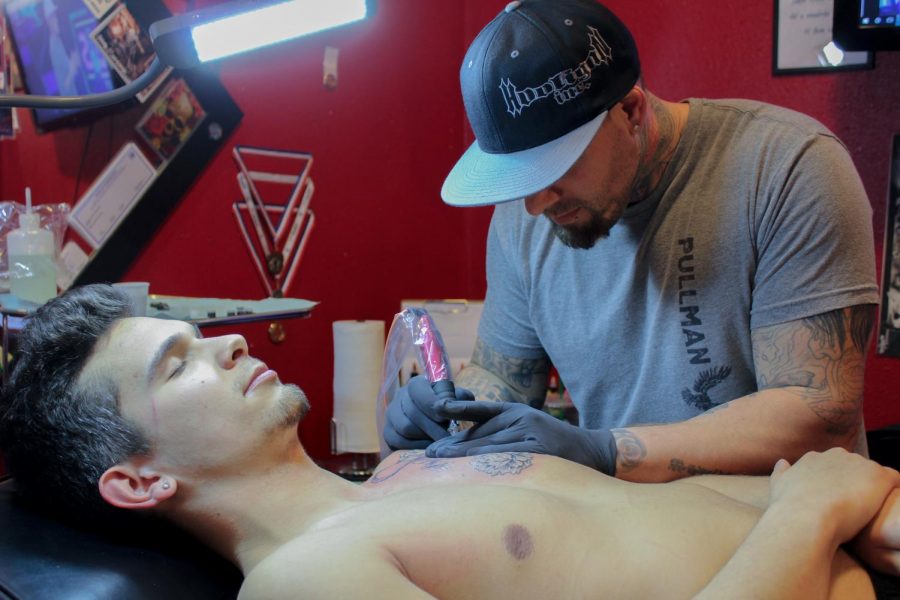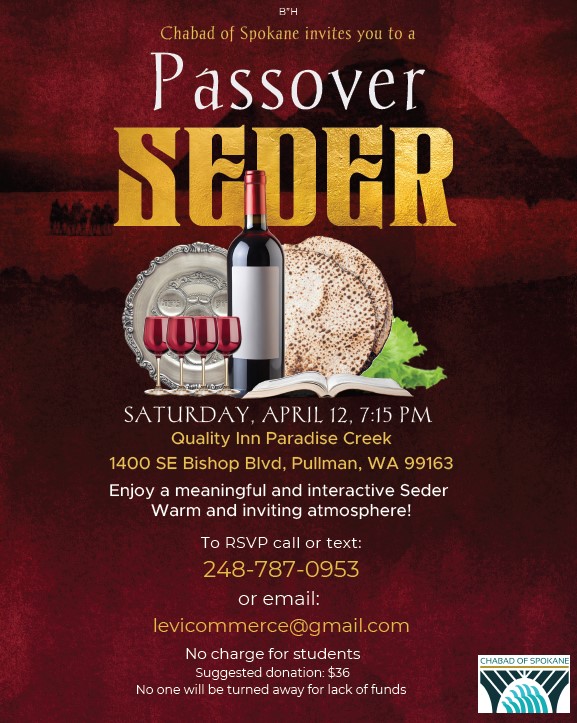Tattoos: How to make informed decision
Anyone interested in getting ‘inked’ should know about cleaning, moisturizing freshly tattooed skin
ABBY TUTOR | DAILY EVERGREEN FILE
Blood Diamond Ink owner Chris Peltier gives WSU junior Cory Salander a chest tattoo. Triumphant Tattoo artist Todd Holley said wearing gloves is more for the protection of artists than it is for the customers.
March 28, 2018
Getting a tattoo spontaneously — or drunkenly — may seem like a good idea at the time. However, there are some things to think through before committing.
Braden Hourigan, manager of Liberty Tattoo in Seattle, said that when getting a tattoo, it’s important the customer be clear with the artist about what they want.
Hourigan said people can choose from the shop’s art or bring their own picture for reference. All tattoo shops have some designs on hand, and he said his shop offers thousands of options. Pinterest also offers tattoo inspiration pages.
Tattoo-seekers should also listen to artists, Hourigan said. They have professional opinions and can express any limitations for a specific design.
Hourigan said nowadays if a shop is legally open, everything should be safe and sterilized. People aren’t likely to get infections if they properly care for their tattoos.
Todd Holley, a tattoo artist at Triumphant Custom Tattoo in Pullman, said cleaning a tattoo is surprisingly easy. Applying moisturizing, unscented lotions three to four times a day can prevent an infection because it keeps the skin from drying out.
“Other than that, it’s pretty simple,” Holley said. “Just wash it with soap and water and you should be fine.”
Most of the time, he said, a recent tattoo will experience some slight skin irritation, but that usually doesn’t mean it’s infected. New tattoos that rub against clothing are most susceptible to that type of irritation.
If a tattoo is inflamed, Holley recommended following up with the artist before going to a doctor, since many doctors may claim it’s infected even if it isn’t.
That said, infections do happen. Holley said that’s when people should see a doctor and receive the right antibiotics and treatment for their skin.
Jackson Leo is a tattoo apprentice at Super Genius Tattoo in Seattle, learning to become a certified tattoo artist. He said signs of an infected tattoo include redness or puffiness, but these are also signs of irritation and may be no cause for concern. Fever may also be a sign of an infected tattoo.
Holley said people need to scope out the area and availability of artists, because talent and work varies. In a parlor, he said it’s important to note how clean the environment is, but also whether the artists are hygienic themselves. He said customer service — whether the employees are friendly and attentive to specific needs — is also important.
For those with minor skin conditions like eczema, Holley said this shouldn’t affect the process as long as they follow the general washing procedures mentioned above. He said someone with a full-blown rash should obviously reconsider, but keeping the area moisturized and clean should prevent any issues for those with these conditions.
“Other than that, obviously don’t get them at home or in a non-studio setting,” Holley said. “Make an informed decision about where you’re going.”
In the state of Washington, anyone over the age of 18 can get a tattoo, but parental consent is required for tattoo-seekers younger than 18.











